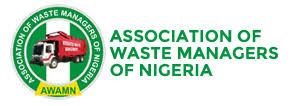The Association of Waste Managers of Nigeria (AWAMN) has called for an enabling environment to ensure efficient and effective waste management in the state.
In an interview with correspondence on Monday in Lagos, Mr. Olugbenga Adebola, the President of AWAMN, emphasized the importance of collaboration between the government and Private Sector Participants (PSPs) to address the challenges within the waste management value chain.
Adebola commended the Lagos State Government (LASG) for its initiative in providing compactor trucks to PSPs under a lease-to-own model, facilitated through the Lagos Waste Management Authority (LAWMA). He acknowledged this gesture as a step in the right direction but stressed that it was only a small part of the solution.
“While the purchase of trucks is a good gesture, it addresses perhaps only 10 to 15 percent of the challenges,” Adebola explained. “A more comprehensive solution requires addressing a range of operational issues that are hindering effective waste management.”
He noted that AWAMN had written to the government in October 2023 and again in November 2024, identifying key issues that need resolution. These include concerns about the specifications of the trucks being leased to PSPs and the long-term sustainability of such initiatives. Adebola pointed out that understanding the technical details of these trucks, such as their fuel type and chassis design, is crucial for ensuring their effectiveness in the Nigerian context.
“If we are going to pay for these trucks, the operators need to be involved to ensure that they are suitable for our specific needs,” Adebola said, highlighting the need for input from waste managers in the decision-making process. “We need to know the durability of these trucks, their fuel type, and whether they are designed to handle the Nigerian road and fuel conditions.”
Furthermore, Adebola raised concerns about the financial viability of the lease-to-own scheme. He questioned how waste operators would manage to recover the cost of the trucks given the current waste management charges in the state, which he said are not sufficient for sustainable operations.
“The current charges are not enough to break even,” Adebola stated. “Without an effective mechanism to ensure full cost recovery, the lease-to-own scheme could turn into bad debt.”
Adebola also called for a Memorandum of Understanding (MoU) between the government and PSPs to ensure a clear framework for investment and financial recovery. He emphasized the importance of long-term, low-interest financing to support waste management operations.
“Operators need access to green funding, with single-digit interest loans and long repayment periods,” Adebola said, noting that commercial banks in Nigeria are not providing loans at favorable rates for waste management projects.
He concluded by stressing that waste managers are essential service providers and should be supported through special funding from the state or federal government to ensure the sustainability of waste management services in Lagos State.
(NAN)


